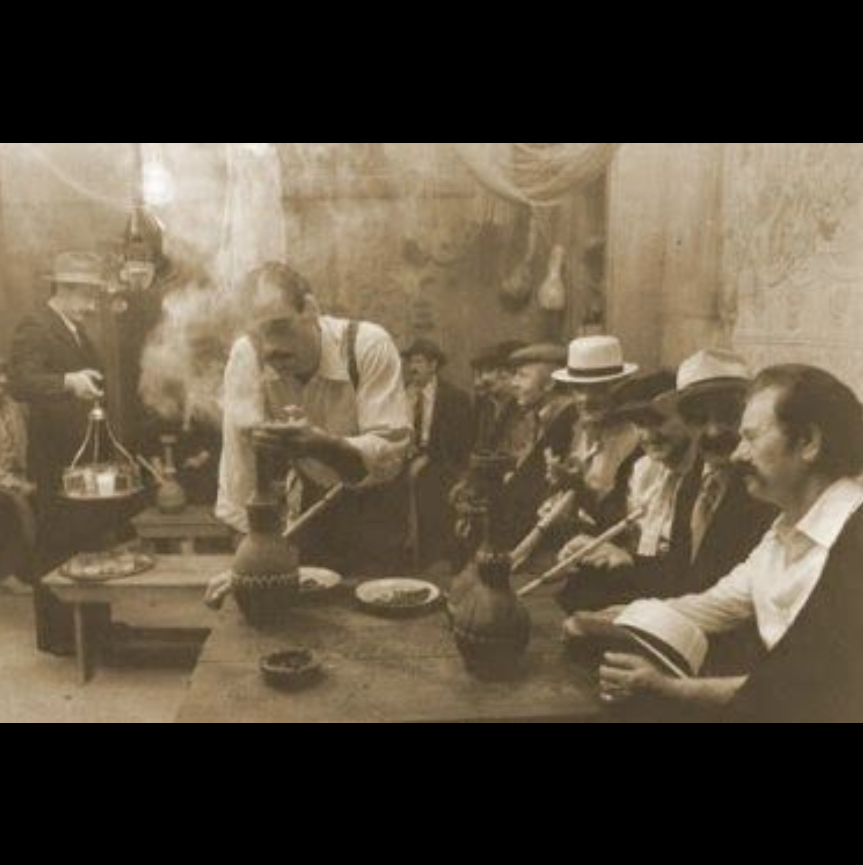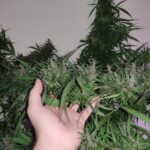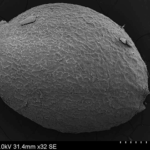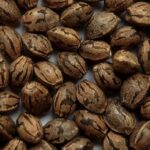The photo shows a hashish smoke-up at a ‘tekke’ in early C20 Greece.
Tekkes were cafes or dives in Greek ports such as Piraeus where tokers gathered to smoke hashish, drink tea and coffee, and listen to the music of rebetiko. Often these men were involved in the busy hashish traffic between southern Greece and the North African coast, feeding the vast demand from the megacities of Egypt such as Cairo and Alexandria.
‘Tekke’ comes direct from the Turkish and Persian words for a Sufi lodge or ‘khanqah’, the hospices where Muslim and non-Muslim travellers could find rest, food, music, and hashish.
Wiped out as a political threat by nationalist or communist governments in Turkey, Iran, and Central Asia, authentic old-school Muslim ‘tekkes’ or ‘khanqahs’ can still be found in South Asia – i.e., in India, Pakistan, and Bangladesh.
In the C13 heyday of the qalandar dervishes, Islam’s original dope fiends, tekkes were the locus of a high-minded and increasingly *high* Islamic counterculture, with chronic hashish intoxication central to the qalandars all-out rejection of bourgeois Muslim society – along with in-your-face nakedness, public homosexuality, body mutilation, wild music, and trance dancing.
In Istanbul today some traces of the qalandars can still be found in the ‘Kalenderhane’ or ‘Qalandar House’, a Greek Orthodox church that was given over to these anarchist dervishes after the Turks took Constantinople in 1453. Heavily armed, dervishes fought as irregulars among the Ottoman Turks and were later tamed and incorporated into the army ranks through the Bektashi Order as the Janissary corps.
No less notorious for their use of hashish, the Janissaries wore dervish-derived garb that featured ‘charas-dān’ pouches for their stash and gunpowder.
For more on qalandars and the roots of global cannabis culture check out ‘Charas or Hashish: The Straight Dope on Old-School Cannabis Resin’.
The Real Seed Company now offers a range of Greek cannabis landraces including Arcadian and Kalamata Red, as well as closely related landraces such as Lebanese and Syrian.
And while we’re on Greek hashish music, probably the best loved rebetiko song of all is this classic by Marcos Vavmvakaris. Ethnobotanists note the moment where a female vocalist chimes in to call Marcos a ‘dervish’!






